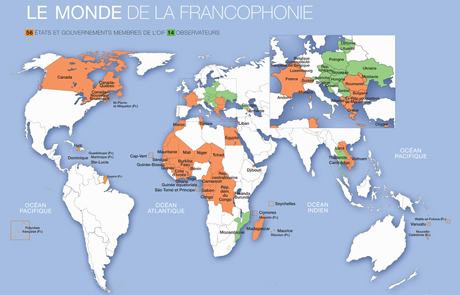Francophone scholars chart the field's future
By Daniel Aloi
Francophone studies is one of the fastest-growing fields in terms of modern language academic hires. The field is integral to the understanding of postcolonial history and the literature and cultures of former French colonies in North America, the Caribbean, Africa and Asia.
However, “integrating the literatures of countries outside of France in French studies remains a challenge,” says Laurent Dubreuil, director of the French Studies Program at Cornell. “In the current curriculum, students are exposed to Francophone culture and literature, though more work still needs to be done in this direction.”
Scholars will discuss challenges and new directions in the field at a one-day French Studies workshop, “Francophone Futures,” Nov. 16, 10 a.m.-6 p.m. in the A.D. White House. The plenary speakers are Dubreuil; Marta Segarra of the University of Barcelona, Spain; Daniel Desormeaux of the University of Chicago; and Dominic Thomas of the University of California, Los Angeles.
The conference will end with a roundtable discussion from 5 to 6 p.m., with the speakers joined by Naminata Diabaté, a Mellon postdoctoral fellow at Cornell who joins the comparative literature faculty next year, and David Fieni of the State University of New York, Oneonta.
One of the event’s goals is to “rethink the challenges that lie ahead of us, in terms of race issues, problems of diversity … and the signification of languages and literatures in those debates,” says Dubreuil, who is also editor of the journal Diacritics and the author of “Empire of Language” (2013).
The plenary speakers will represent different geographical focus areas including North and Sub-Saharan Africa, the Caribbean and “black France,” Dubreuil noted. They will offer a variety of approaches, such as gender studies, interactions with anthropology and sociology, and historical and archival research that resurrects texts by black authors. Dubreuil will discuss a 19th century Haitian poem in relation to contemporary literary theory and continental philosophy.
“These four directions see us trying to understand the field and where we are seeing the most interesting work being done,” he says. Several of the conference participants “are the new guard – the ones entering the field in a moment when it is growing very fast. I hope our discussions will represent the new trends and new ideas we want to bring to Francophone studies.”
Dubreuil is teaching an undergraduate introductory course in Francophone literature this semester, focusing on Algeria from the 1930s to the 1960s, the Negritude movement (influenced by the Harlem Renaissance and based on shared black identity, adopted by writers, intellectuals and politicians in response to colonial racism), and contemporary suburbs (banlieues) in France, “mainly inhabited by immigrants or descendants of immigrants from a colony or former colony of France,” he says.
In the banlieues, where rioting has occurred over the past decade, and throughout French culture today, “the questions tied to race and political domination are very vivid,” Dubreuil says. “These problems are still being raised and explored today in France. The colonial past is not completely past. Our first task is certainly to understand this persistence and to reassess our common history. But cherishing memories is not enough: It is now time to build up a different kind of future, after the postcolonial.”
Media Contact
Get Cornell news delivered right to your inbox.
Subscribe